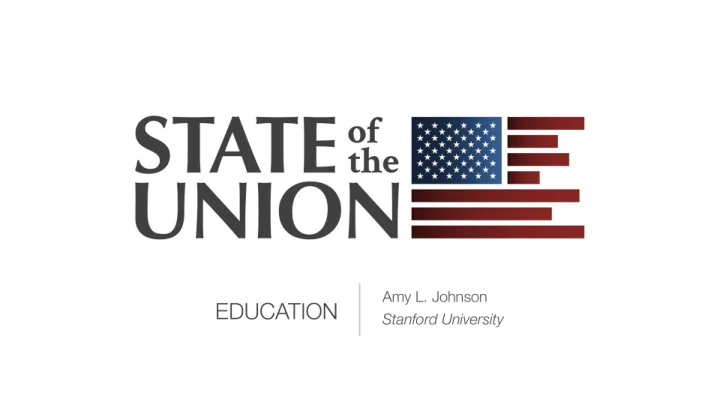

Diverging Destinies Millennials’ Returns to Education Florencia Torche and Amy L. Johnson CPI State of the Union 2019 6 June 2019
Pew Research Center 2015 NPR 2014 The Atlantic 2018 Slate 2018
Are Millennials better or worse off than prior generations when it comes to labor market outcomes? Is a college degree more or less beneficial for Millennials than for prior generations?
Data and Variables • Current Population Survey (CPS) 1975-2018 • 3 different economic outcomes • Unemployment • Working full-time year-round • Earnings • Education • Bachelor’s degree or more (high education) • High school or less (low education) Generations 1939-1949: Silent Generation • At ages 25, 30, 35, 40, 45, 50, and 55 1950-1960: Baby Boomers • For men 1961-1971: Generation X 1972-1982: late Generation X 1983-1993: Millennials
Unemployment
Unemployment
Unemployment
Full-time year-round work
Full-time year-round work
Full-time year-round work
Income
Income
Income
Are Millennials better or worse off than prior generations when it comes to labor market outcomes?
Answer: “diverging destinies” • Highly educated Millennials are doing as well as prior generations, but millennials with low education are doing worse than ever. • The gap in economic outcomes between individuals with a college degree and individuals with no more than a high school education is wider for Millennials than for prior generations. • The gap emerges because Millennials with low education are doing worse , not because Millennials with high education are doing better. • Millennials’ experiences fit into a long-term trend of rising education- based inequality and economic vulnerability among those with less education.
Thank you! Florencia T Torche Amy L L. J Johnson Stanford University Stanford University torche@stanford.edu aljohnson@stanford.edu
Recommend
More recommend